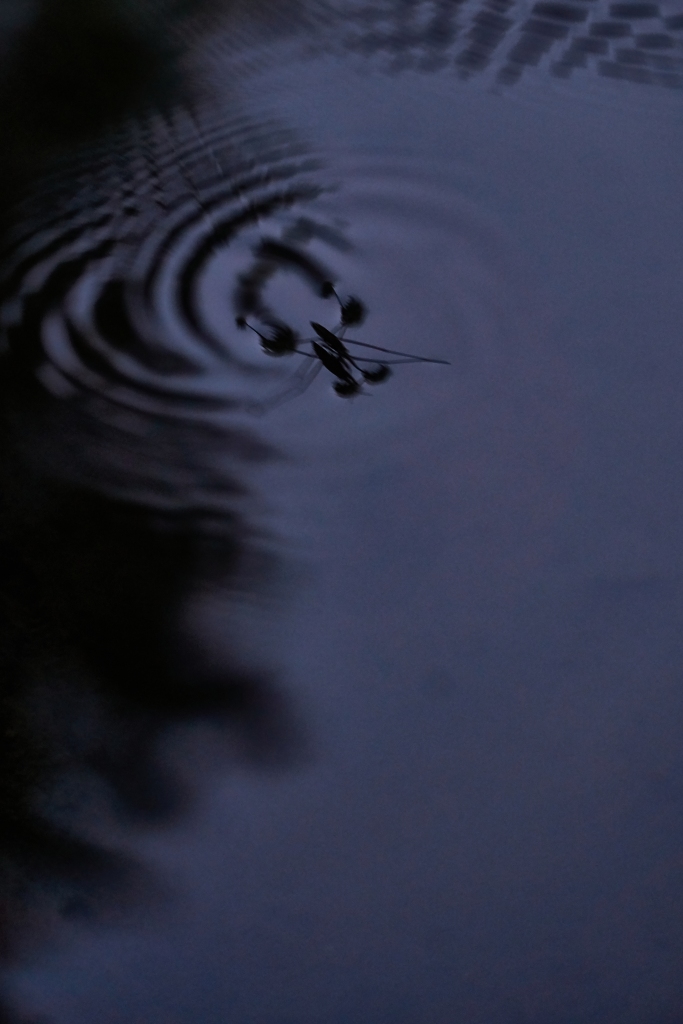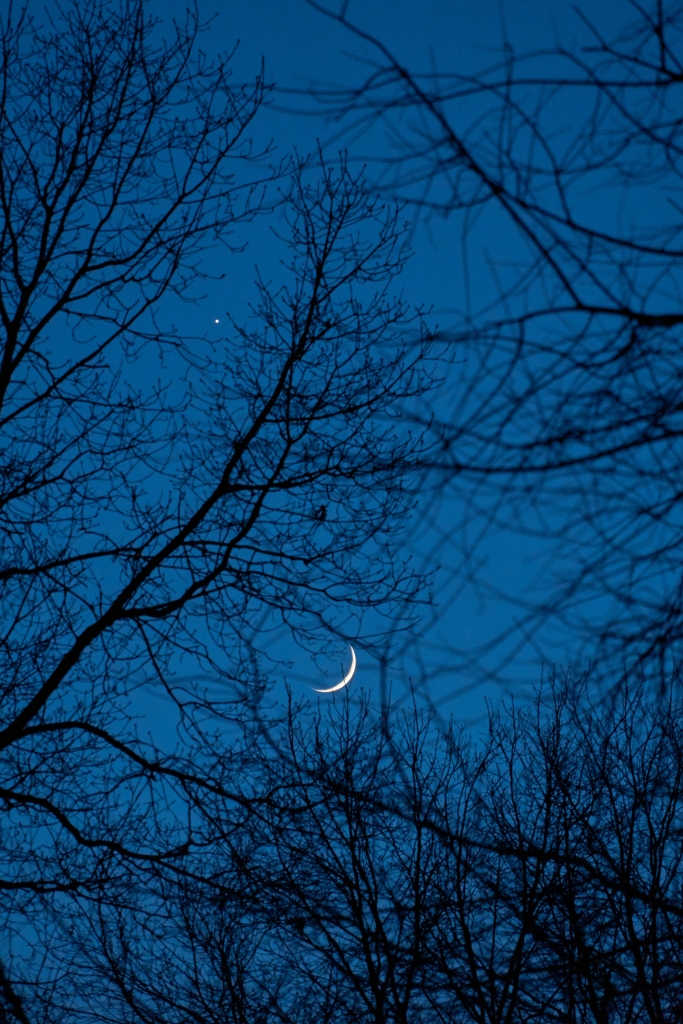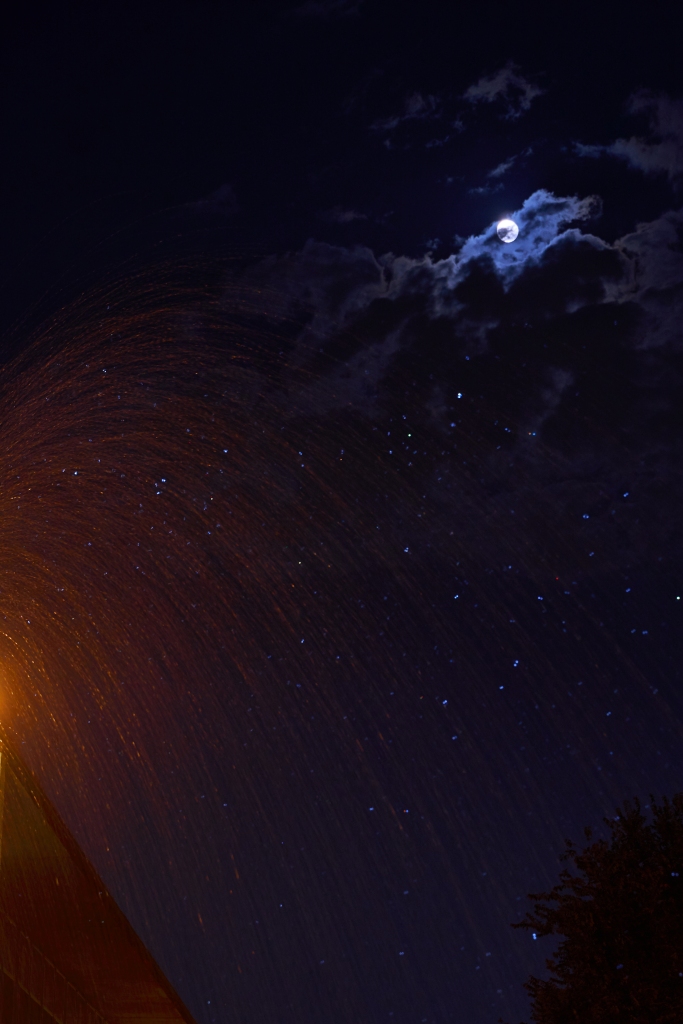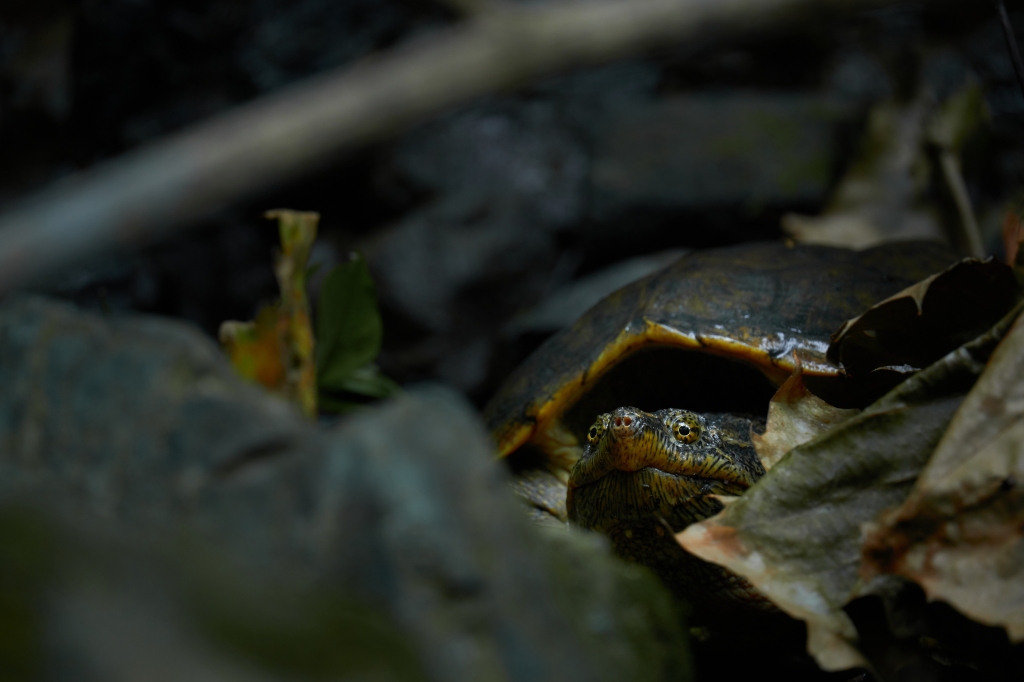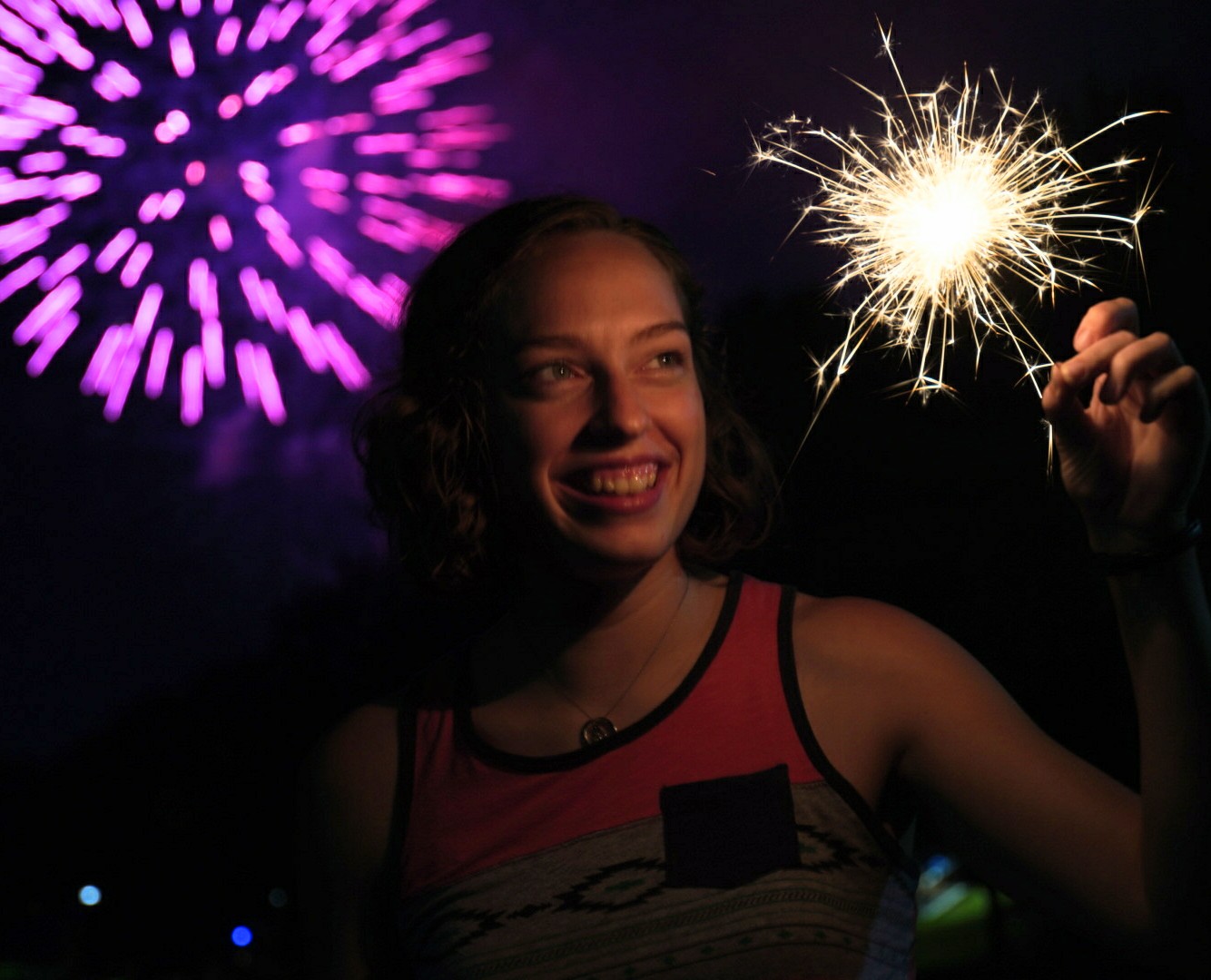Bluford stepped out of the Post Office into a sea of heat. The door swung slowly closed, cutting off the cool breeze, like when a hose gets kinked and suddenly dries up. The brass trim reflected the sun in his face, and, insulted, he started down the steps. He looked mostly downward. Every surface reflected the light, and besides, the distance was obscured by rising waves of heat. Bluford thought it looked like the windows in an old house he had toured once. He didn’t need to observe; he was familiar with the route. He had walked down this street a hundred times, and could probably have done it with his eyes closed. But habit kept them open.
Into the narrow circle of his vision, taken up mostly by his feet, slid asphalt. He glanced up, and was blinded by the shine of a sculpture down the side street. Bluford was offended, both because his eyes hurt and because the ‘sculpture’ was little more than a collection of aluminum cans, steel rods, and bits of automobile. Even he was worth more to society than sculptures like that. There were, however, no working automobiles in site, and so he continued across the street.
Something, a fly? tickled his side; he slapped at it, and his hand came away damp. The humidity and his sweat seeped into his clothing from opposite directions, saturating them. He swam slowly across the street, trying to feel as little as possible.
The shade on the other side pulled him in, lazily, until he paused beneath it. He had an anti-deja-vu feeling, as if he should be remembering something but couldn’t. He felt vaguely angry, as if he had just been annoyed but wasn’t anymore. He supposed whatever it was wasn’t worth his attention.
Presently, he felt cooler, and, looking up, saw that he had put his jacket on a nearby bench. Or perhaps someone else had, there was no way of knowing. Frankly, he was shocked. The jacket made him look professional, he thought; it was what a responsible and clear-minded person would wear. Bluford’s uncle Bertram was the most absent-minded person he knew. When Uncle Bertram was discussed, which was rare, he was invariably described as “eccentric.” Anyone would describe the jacket on the bench the same way. Bluford was annoyed, but no worse; being angry always made him hotter.
He sat next to his blazer, glanced around once, and then tried not to move. He closed his eyes, holding onto each breath of breeze for as long as he could. He heard a car drive past…and then fade into the incessant noise of distant traffic. He had not done anything that day, and he was tired.
And yet…
Across the street, a babble of girls’ voices drifted past.
They were talking loudly, but he couldn’t pick out the words.
He had…
He had done something.
Or…gotten something?
It was not the previous memory of annoyance, but something he wanted to remember, something satisfying left undone. The dishes glittering under the kitchen window…messy stack of papers…paper, yes, but it had been in cool in his hand and he had opened his eyes wide to see in the blue dim. He opened them now and squinted around. There it was! He had gone to the post office, and in the inside pocket of his blazer was a letter. It was sticking up just slightly, a stripe in the darkness. He took it out.
The tearing paper almost startled him. He opened the flap, and there, thin but strong as a spider’s web, standing out against the white paper and the glittering sun were the words
Love,
Frances
She had folded it in such a way that the last page was on top, and he was greeted by her closing. A shiver ran over him, in spite of the heat.
He had a picture of her, in his head. He hadn’t chosen it, in particular, out of all his memories of her, but it came to him first as he stared at the back of the envelope. They were walking downtown. It had been October twenty-fourth, dusk; the breeze was strong. He didn’t remember the conversation, just a moment when a sparrow had flown up and she had turned to look at it. Her braided hair flung out to the side, and she kept walking, so the silhouette stood out against the pink and blue lights behind her. And yet she was the one in motion, and the town was standing still. He had felt, then, that he was in motion with her; and the air racing past was on account of their running.
He turned the pages over to the beginning.
Dear Bluford,
The moon is beautiful in the desert. The sky is blue, even at night, and the moon lights the sand orange and silver.
Why are you called Bluford? I’ve always wondered but never asked.
I can’t say exactly where I am (which is very exciting) but I am in the desert, reporting on … a war. 😉 I’ll tell you all about it when I get back. I’ve filled three SD cards so far, so I can show you all about it too Today I was riding along with the Marines, and there was a little girl on the side of the road with a chicken almost as big as her…
Frances was always doing big, exciting things, in Bluford’s opinion. And she looked at sparrows, and wrote about the moon, and took pictures of little girls. It was a beautiful paradox that he struggled to take part in. Or rather, he felt he had had an opportunity at some point in the past, and had floated past, down the sweltering street.
Remember when we were watching birds? That was the best day. You mentioned you wanted to join special forces, how’s that coming? Hey, maybe we’ll meet up in some exotic country!
He jumped up and seized his blazer. Of course he remembered that day. They had looked far over the water toward the far-off ducks and blackbirds and herons. The water shimmered, and they saw a bird neither could identify, Frances was determined to look it up later. And the moon rose, and hung low and large, and the trail across the water stretched toward them.
He began hurrying back up the street. He felt as though he had been, or still was, inside a frosted glass box, and Frances had hit the outside with a hammer. Bluford flinched, but the street was empty, except for him. He was still walking, and felt, now, as if he had a mission. He had not done anything that day; he had seen the messy stack of papers and had decided he would go to the Post Office instead, in spite of the heat. Clear cracks spread across the box, and icy chips shattered across his face. He could see out, now, through the heat.
Dear Frances,
Thanks for writing.
He looked ahead, down the street, and saw the birds, in the blue light after sunset. Frances was saying she wanted to be a journalist so people could know the truth about themselves and each other. I didn’t just mention special forces, I elaborated embarrassingly on mission and purpose. We were unironically unrealistic back then; but Frances still is.
He hurried on, and the glass box floating around him smacked against a light pole and shattered in the road. It sparkled under the sun, like water in the desert.


